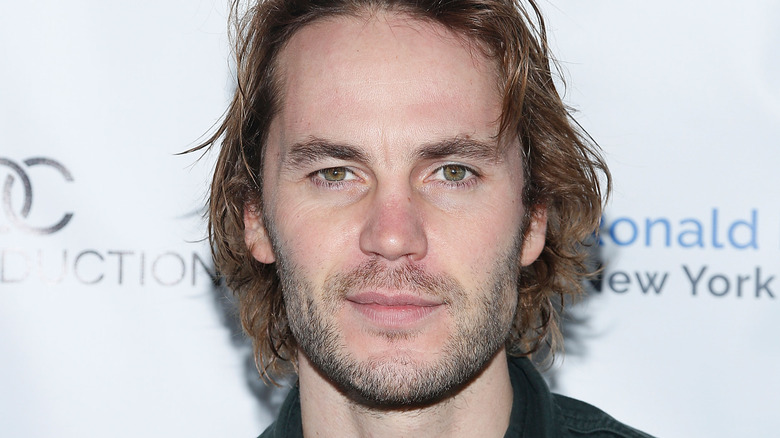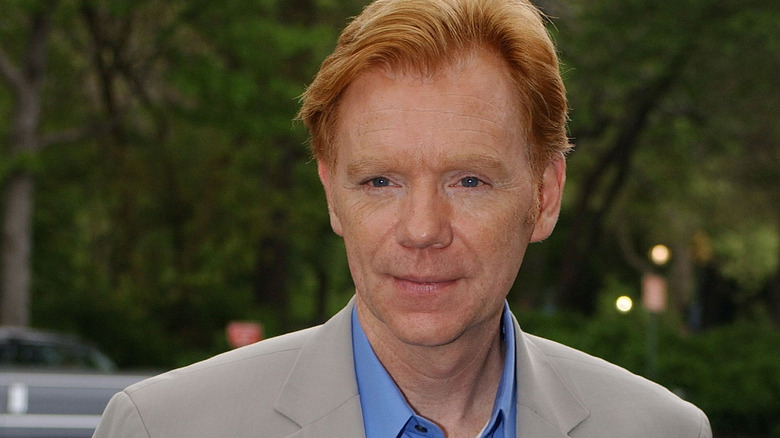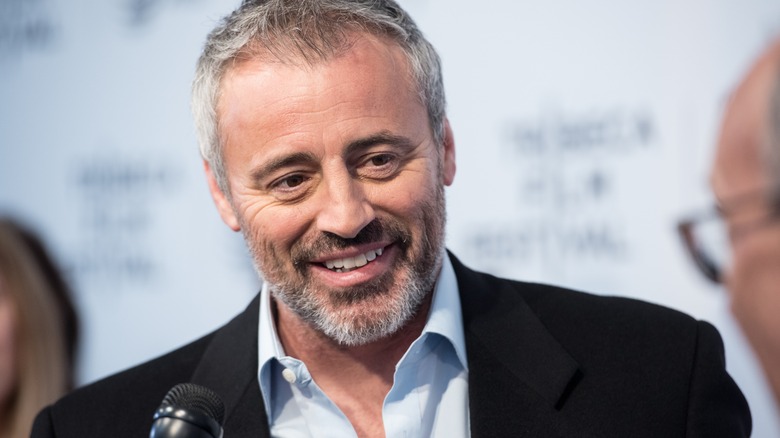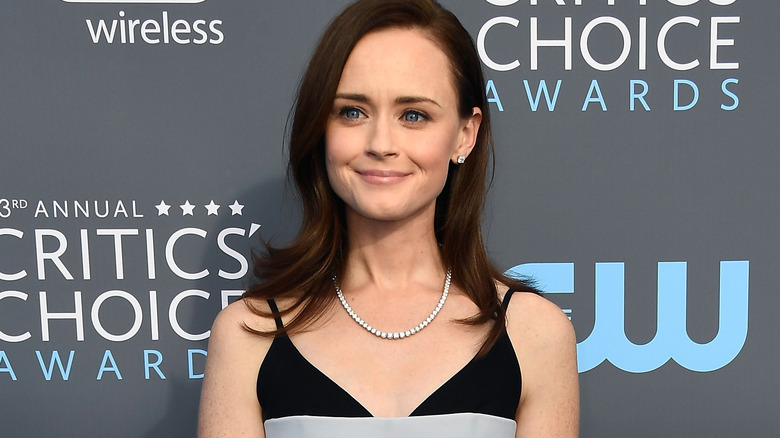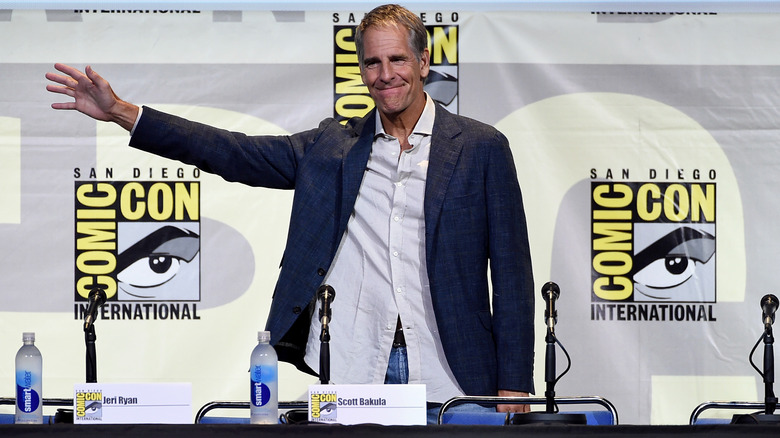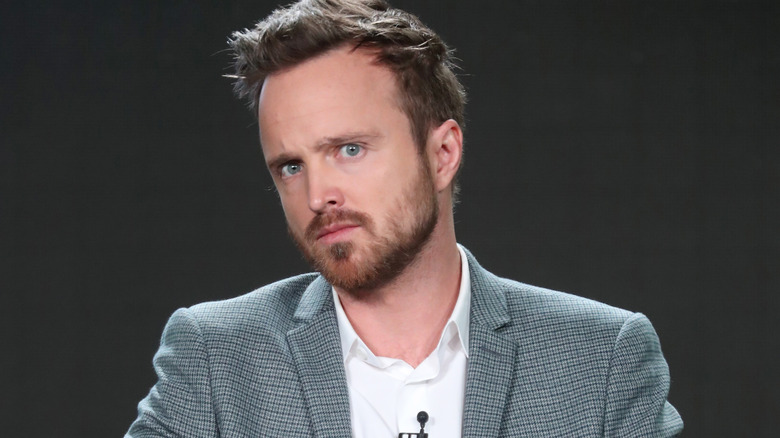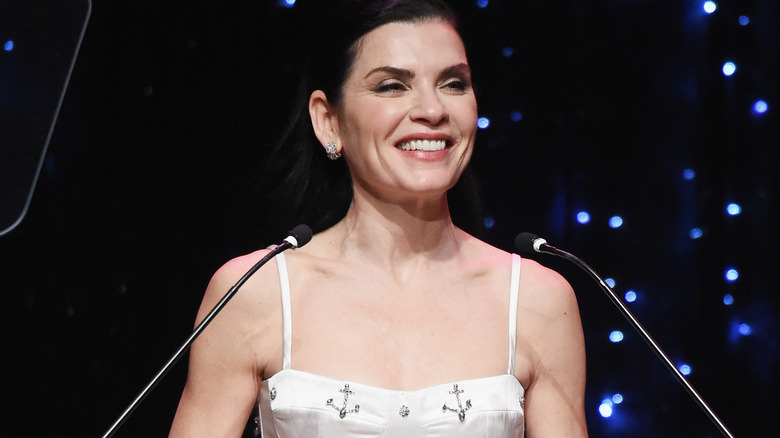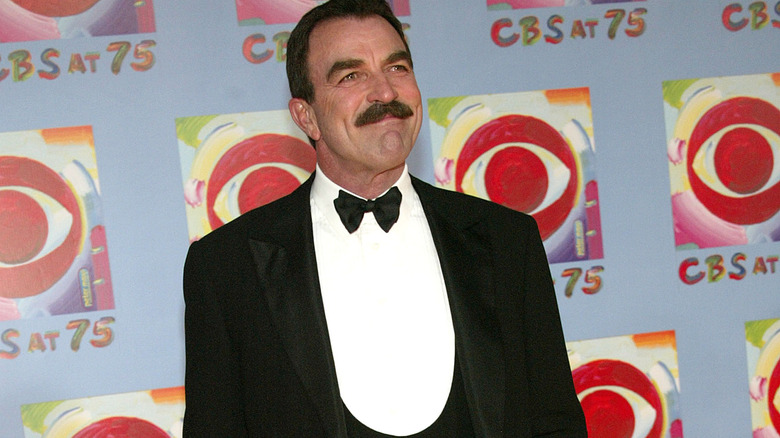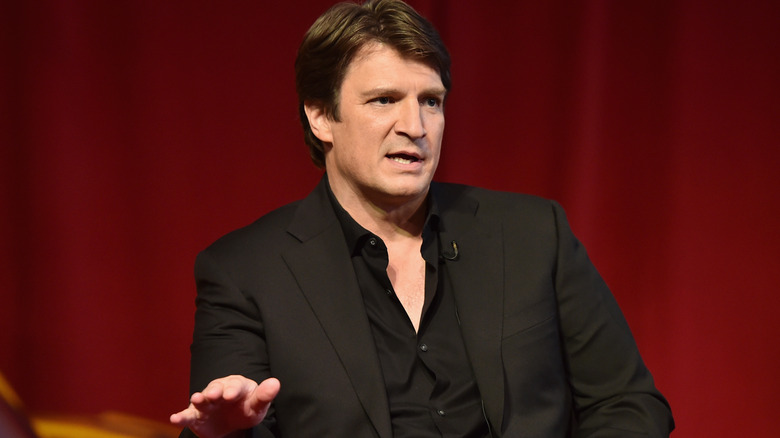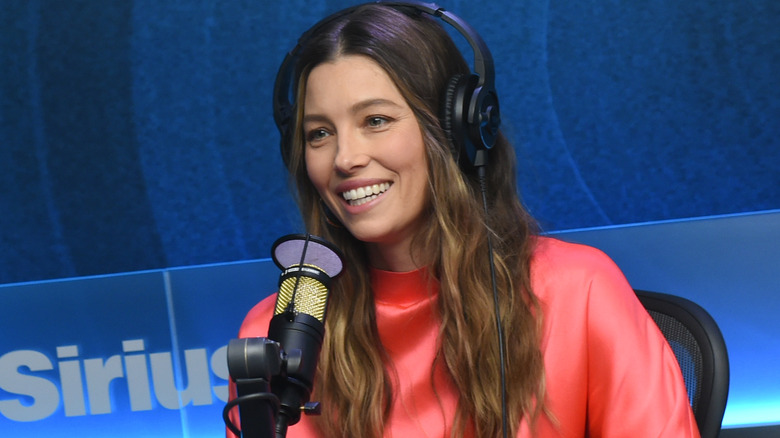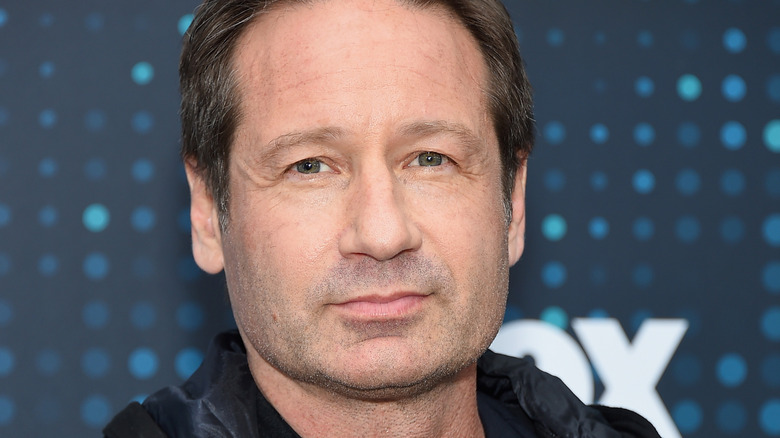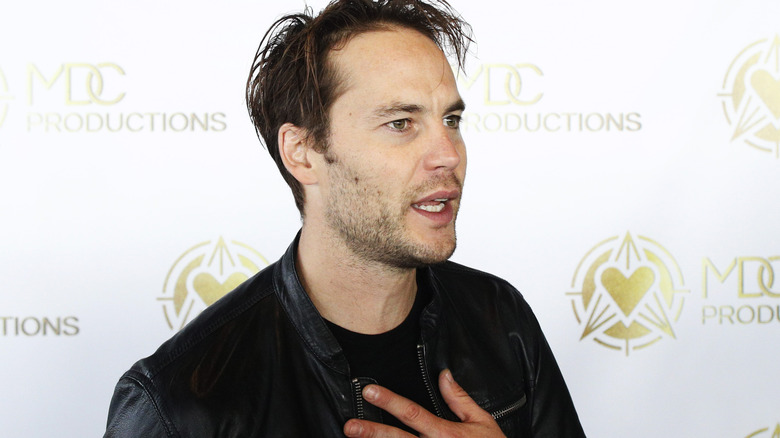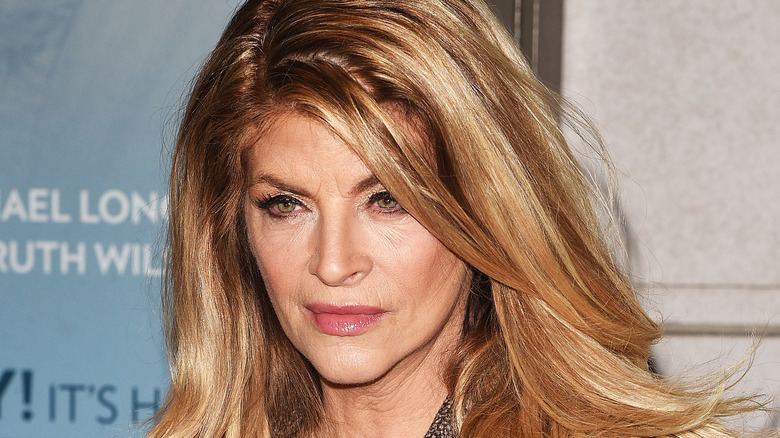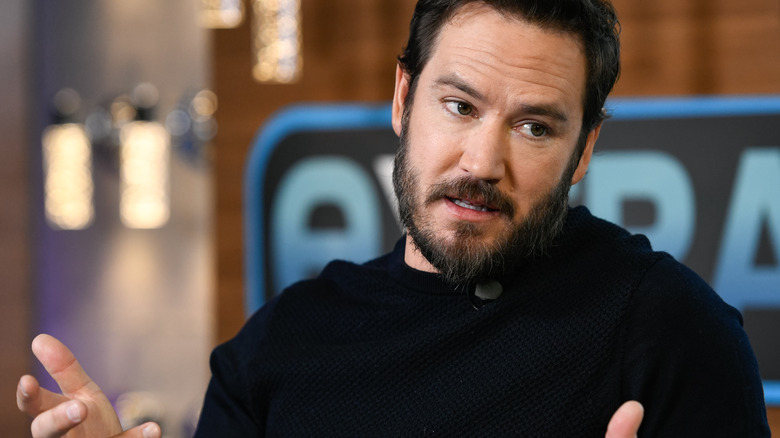TV Actors Who Returned To Television With A Hit After Failed Movie Careers
These days, television and movies are almost indistinguishable from each other to an extent. Things all sort of blur together on streaming services, where viewers often don't differentiate between films and extended episodes of series — and this is spurred on by the fact that most series have the look and the budget of a major Hollywood production. Furthermore, when actors like Robert De Niro, Al Pacino, Julia Roberts, Matthew McConaughey, and Paul Giamatti are all doing TV shows, the previous sharply-drawn line between the big and small screens is virtually nonexistent.
But it wasn't always that way. Once upon a time, there were "TV stars" and "movie stars," and the only time there was crossover was when an actor graduated from television to film. TV was seen by many as a mere starting point to their careers, with getting to be a movie actor being the ultimate end goal. While plenty made that transition just fine and stayed on the big screen once they got there, some actors took a swing at movie stardom and missed so hard that they had to return to television — which used to be seen as having to take a step backwards. Luckily, that stigma is gone now, but it definitely had to hurt for some of these people.
David Caruso
Fair or not, David Caruso was once the prime example of a TV actor who thought he had gotten too big for television and left a popular show too soon, only to not become the A-list leading man that he expected to be. It's impossible to know if he would have had better luck had he stuck it out on "NYPD Blue" for another season or two and gotten more of a foothold in Hollywood before leaving his breakthrough TV role behind. As it stands, his attempt at being a movie star wouldn't go well nor last long.
After less than two full seasons on the extremely popular police procedural, seeing his name pop up on one "next big thing" list after another had Caruso convinced that he was going to be headlining hit movies in short order. But after he was a double Razzie nominee for "Worst New Star" for his first two movies — "Kiss of Death" and "Jade" — things weren't off to a great start for Caruso's new career in film. By 2000's "Proof of Life," Caruso was already relegated to being a supporting player, and in not particularly good movies to boot.
When Caruso had the chance to return to television in another hit police procedural in 2002, he took it, playing the lead role for 10 successful seasons of "CSI: Miami."
Matt LeBlanc
Matt LeBlanc has done something that few actors manage to pull off — appear in several successful television shows. It's already pretty rare that a member of a show as huge as "Friends" even finds a second series that lasts, let alone a third. But LeBlanc has done exactly that, having appeared in both "Episodes" and "Man with a Plan," which lasted for two and four seasons, respectively — not to mention an extended stint on the car show "Top Gear."
He didn't roll smoothly from "Friends" right into his subsequent shows, though. Beyond the failed spin-off "Joey," LeBlanc did take a stab at a movie career for a few years. The results included a baseball movie where his co-star was a monkey, and the critically panned 1998 reboot of "Lost in Space," among other things. LeBlanc would eventually take a bit of a break to reassess his career, which turned into a six-year hiatus from acting (per The Hollywood Reporter). The time off was obviously the right move, as his first post-hiatus project was the acclaimed "Episodes."
LeBlanc has been in only one movie since his return to acting, and that was 2014's "Lovesick" — so he's clearly decided that the small screen is where he does his best work.
Alexis Bledel
Not counting her uncredited appearance as a student in the 1998 comedy "Rushmore," Alexis Bledel got as good of a debut acting role as a teenager could ask for — playing Rory Gilmore for seven seasons of the beloved and acclaimed series "Gilmore Girls." While she definitely had some relative success in film during her "Gilmore Girls" run, appearing in movies like "The Sisterhood of the Traveling Pants" and "Sin City," things didn't seem to go quite as well for Bledel on the big screen after "Gilmore Girls" wrapped.
Though she definitely made a few interesting choices in smaller movies like "Violet and Daisy" and "The Brass Teapot," none earned Bledel any significant acclaim. Plus any indie cred she might have had going for her was spoiled by her appearance in forgettable comedies like "Post Grad." In 2012, Bledel got some attention for her brief stint as Beth Dawes on "Mad Men," which perhaps helped to point her back in the direction of television. That's where she experienced her eventual career revival as one of the leads of Hulu's acclaimed series "The Handmaid's Tale" — now typically listed right alongside "Gilmore Girls" as her most notable roles.
Scott Bakula
Scott Bakula had been a steadily-working television actor throughout the 1980s, with multi-episode stints on "Gung Ho," "Designing Women," and "Matlock." But his breakthrough and first major lead role began with the debut of inventive sci-fi series "Quantum Leap" in 1989. He played physicist Sam Beckett, who was forced to inhabit random people's bodies and help them navigate a pivotal moment in their lives.
It didn't take long into his time on "Leap" before Bakula tried his hand at movies, appearing in the 1990 film "Sibling Rivalry" and then playing the lead role in the 1991 football comedy "Necessary Roughness." Neither of those had set up a super successful movie career for Bakula, and even after "Leap" ended in 1993, he didn't get anything close to a big breakout movie role. In fact, Bakula's 13 episodes on "Murphy Brown" in the mid-'90s had been his most noteworthy post-"Leap" role, seeming to hammer home that TV was a better fit for him.
Other than a minor role in the award-winning "American Beauty," Bakula continued to flounder on the big screen before finally scoring another major role — again on a sci-fi television series — when he landed the part of Captain Jonathan Archer for four seasons of "Star Trek: Enterprise" in 2001.
Aaron Paul
When people first saw him as Jesse Pinkman on "Breaking Bad," they knew they'd seen Aaron Paul in other projects, but they probably struggled to name them. That's because he was something of a "hey it's that guy" prior to his breakthrough role in the AMC drama, largely only appearing in single episodes of TV shows and as very minor movie characters. Needless to say, everyone knew his name after both "Breaking Bad" and "Big Love" — the latter of which he appeared on 12 episodes of, concurrent to his time on "Bad."
After the two shows that put him on the map, Paul took a few big swings at Hollywood superstardom via his role in the Ridley Scott epic "Exodus: Gods and Kings" and as the lead in what was clearly meant to be the next big car action franchise, "Need for Speed," adapted from the hugely successful video game series of the same name. But "Exodus" just barely broke even at the box office, while "Need for Speed" was mostly only successful in China — to the point that a direct-to-television Chinese sequel was planned at one point, but eventually canceled.
Luckily, Paul quickly bounced back with Netflix's acclaimed "BoJack Horseman," which he starred in and produced, as well as Hulu's well-received "The Path."
Julianna Margulies
Whereas David Caruso became the cautionary tale for leaving an acclaimed drama series to become a movie star and not having it pan out, George Clooney proved that some were able to walk that path to great success — with Clooney's film career even managing to survive "Batman and Robin." With that in mind, some of Clooney's "ER" co-stars felt emboldened to depart the long-running medical drama in order to try making their way in Hollywood, though obviously Clooney remains the biggest movie star among "ER" alums.
Julianna Margulies left Cook County General Hospital in 2000 after six seasons, initially because she wanted to do more live theater but also in an attempt to make more time for movies. Six years into focusing on her film career and having appeared in stinkers like "Ghost Ship" and little-seen films like "Evelyn," she starred in "Snakes on a Plane," which illustrates where said career was at that point.
While she did continue to dabble in minor television roles throughout the 2000s, Margulies finally landed another prominent project that she could be proud of: she played the lead role on seven seasons of "The Good Wife," for which she won two Emmy awards.
Tom Selleck
Few shows were bigger in the 1980s than "Magnum, P.I.," and as a result, few TV stars were bigger than Tom Selleck. He led the top-rated action series for eight seasons between 1980 and 1988, and according to Selleck, the show only ended when it did because he wanted a break — not because he didn't enjoy it or its popularity had declined. You have to respect an actor who is willing to pull the plug on his own series in its prime simply because he was ready to move on to other things, though those "other things" didn't really bring him the same level of success.
Selleck's biggest movie role post-"Magnum" was the comedy "Three Men and a Baby," a major box office hit. But it would be the only film he did in the early-to-mid-'90s that was especially successful, and his career was in a bit of a slump prior to being revitalized by a fairly short but still memorable stint on "Friends" as Monica's childhood-dentist-turned-boyfriend. But it wasn't until 2010 that Selleck had his first major project since "Magnum," when he began his 13-seasons-and-counting role on the hit CBS police procedural series "Blue Bloods," earning acclaim for his performance.
Nathan Fillion
Even though "Firefly" was famously short-lived, it very quickly became a major cult hit whose fandom grew rapidly after the show's cancellation and especially after its subsequent release on DVD. The series also helped launch movie careers for several of its cast members, including Alan Tudyk and Morena Baccarin. Interestingly, lead Nathan Fillion wasn't quite so lucky — despite buzz from the media (via EW) at the time that lavished him with praise for being a genuinely nice guy and implying he could be his generation's Harrison Ford.
It's telling that Fillion's most high-profile movie role post-"Firefly" was 2005's "Serenity" — the film that served as both the sequel and finale to "Firefly." He did play the male lead in indie darling rom-com "Waitress" three years later, but it's not exactly the kind of movie that makes a guy an A-list leading man. After failing to find that movie star vehicle to catapult him into major Hollywood success, Fillion returned to television in 2009 for the police dramedy "Castle," in a role that would earn him five People's Choice awards for Favorite TV Crime Drama Actor across the show's eight seasons. He has since followed that up with another successful law enforcement-based series, starring in ABC's "The Rookie" since 2019.
Jessica Biel
After six seasons as a main cast member on "7th Heaven," Jessica Biel saw her role of Mary Camden reduced to recurring in Season 7 and then only an occasional guest appearance after that. On the podcast Awards Chatter (via E!), Biel explained that she was struggling with wanting to do regular teenager things like change her look or get a haircut and being told she wasn't allowed to do so because of her contract. Naturally, this led to a tense relationship on both sides, which was obviously a big part of the reason why Biel's character was no longer a major presence on the show in its last few seasons.
Biel had already starting doing films even before her time on "Heaven" officially ended, though "Summer Catch" and "The Rules of Attraction" were critical and commercial misses. She did star in the 2003 version of "The Texas Chainsaw Massacre," which did well at the box office but failed to make her the next big A-list actress. In fairness, Biel also appeared in a few well-received films like "The Illusionist," but for every one of those, there were also a handful of forgettable rom-coms like "Valentine's Day" or generic action movies like "Stealth."
She ventured back to television through a few episodes of "BoJack Horseman," before starring in and producing the first season of the acclaimed anthology series "The Sinner" in 2017.
David Duchovny
It can be difficult to break away from a character like Fox Mulder, the FBI agent who is open-minded to the paranormal on "The X-Files." It was one of those shows that develops the kind of fandom that makes it hard for people to separate an actor from the character they play. To his credit, after exiting "The X-Files" before it ended, David Duchovny did attempt to play against type when he was the lead in the 2000 romantic dramedy "Return to Me." But that didn't make him the next go-to rom-com lead, and Duchovny quickly settled into a movie career where he appeared in silly comedies and mostly played conspiracy theorists that all felt like spoofs of Agent Mulder.
Despite Hollywood initially seeming unwilling to let Duchovny play roles that weren't within his "X-Files" wheelhouse, he did eventually get the chance to play a completely different character in another successful project — though it would mean returning to television for the Showtime series "Californication." For his role as Hank Moody, Duchovny was nominated for the Golden Globe for best actor in a musical or comedy series four times, winning the award in 2008.
Taylor Kitsch
It's important to note that it's not necessarily an actor's fault when their big screen dreams don't pan out. For instance, it's pretty easy to think that you're making the right move when you take the lead in a major Disney movie. But how was Taylor Kitsch to know that "John Carter" would end up being one of the biggest bombs Disney ever produced? As far as betting on "Battleship" being a hit, well, that one is a little bit more his bad.
Kitsch's breakthrough role was on the TV adaptation of "Friday Night Lights," where he played the role of Tim Riggins for 68 episodes of the award-winning NBC drama. He had a very Johnny Depp kind of charm about him, and seemed like he'd be a great fit to be the next big Hollywood leading man. But he got saddled with the two aforementioned flops in addition to the little-seen Oliver Stone film "Savages" and playing the role of Gambit in the second-worst "X-Men" movie, not exactly the start to a successful movie career.
In 2015, he earned praised for his work in Season 2 of HBO's hit series "True Detective," the first serious accolades he had received since "Friday Night Lights." Following that up with his acclaimed performance as cult leader David Koresh in the Paramount Network's "Waco" miniseries, Kitsch's career seems to be back on track now that its TV-focused again.
Kirstie Alley
The late Kirstie Alley had the unenviable and seemingly impossible task of having to fill the shoes of Shelly Long — who herself had left television behind in a failed attempt to become a movie star — on the all-time classic sitcom "Cheers." But Alley's performance as Rebecca Howe fit the show just fine, and she managed to insert herself into a cast that had already been working together for years and still had plenty of chemistry with all of them. In fact, she was actually on the show for six seasons to Long's five, all the way through its 11th and final season.
During her time on "Cheers," Alley had already appeared in the hit comedy "Look Who's Talking" and both of its sequels. But final installment "Look Who's Talking Now" flopped at the box office and holds a dreaded 0% on Rotten Tomatoes. The movie came out in 1993, the same year "Cheers" ended, and it looked like her TV and film career had both come to a crashing halt at the same time. Subsequent appearances in the panned 1995 remake of "Village of the Damned" and the Olsen twins' movie "It Takes Two" didn't do much to revive her already-floundering movie career.
So it went for the rest of the '90s, until Alley starred in and produced the sitcom "Veronica's Closet" in 1997. It lasted for three seasons, earned Alley an Emmy nomination, and paved the way for a revitalized career on the small screen.
Mark-Paul Gosselaar
History has shown time and time again how difficult it can be for child and teenage actors to continue their careers into adulthood after the show that made them famous goes off the air. Mark-Paul Gosselaar was the coolest high schooler on TV for a generation of kids who grew up watching "Saved by the Bell." He played Zack Morris between 1987 and 1994, when the character's long-awaited marriage to Kelly Kapowski (Tiffani Amber Thiessen) took place in the TV movie "Saved by the Bell: Wedding in Vegas."
Gosselaar had already been playing a college-aged Zack Morris by the time he was done with the character, so the natural move was for the actor to star in a college comedy like "Dead Man on Campus." Despite the New York Times praising his performance in the movie, it was a critical and commercial disappointment that didn't seem to open up Hollywood stardom for the actor. Rather than continuing on that course, Gosselaar wisely went back to television, soon finding success as a main cast member on the last three seasons of "NYPD Blue" — using the same show to resurrect his career that David Caruso left behind to try and further his own.
